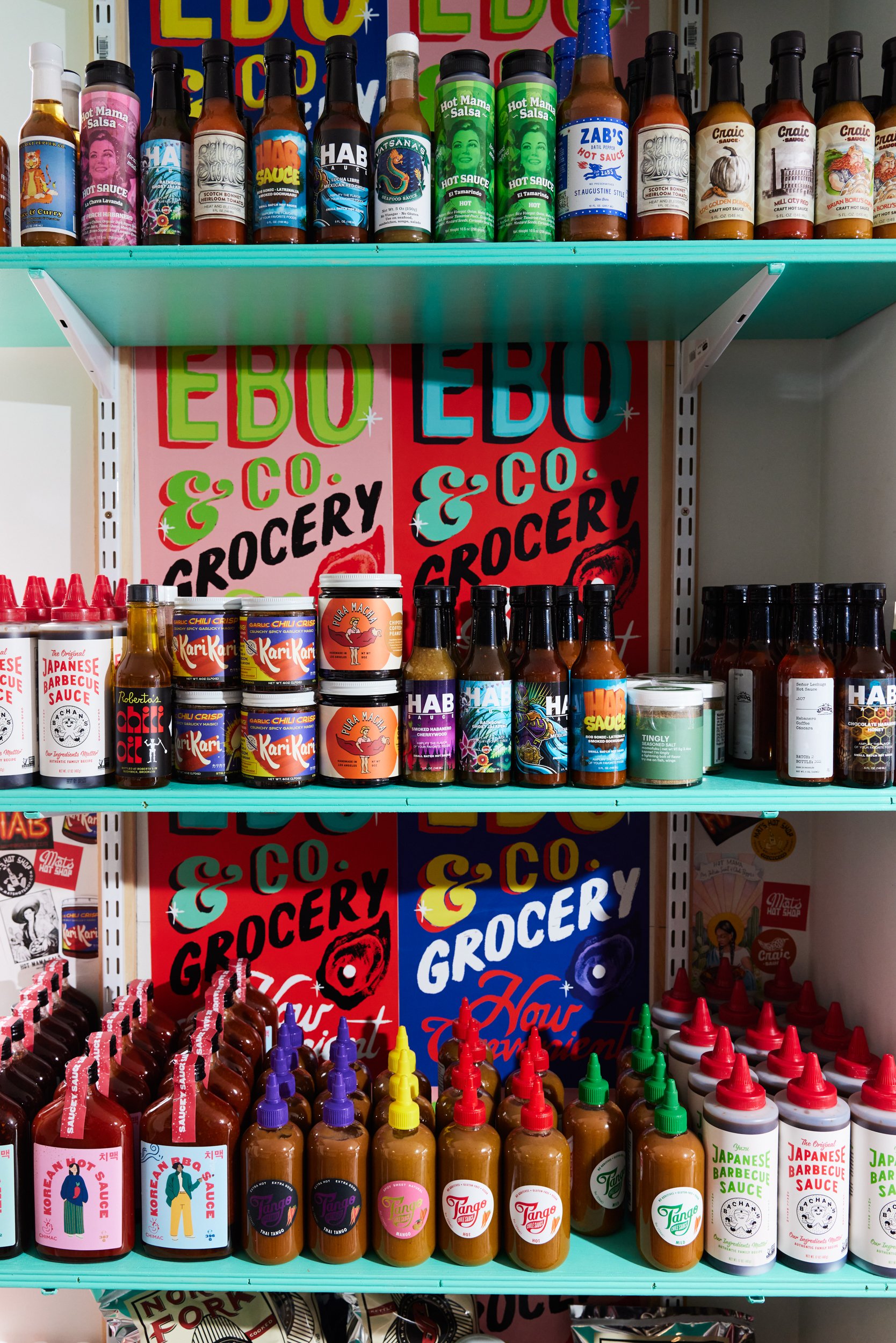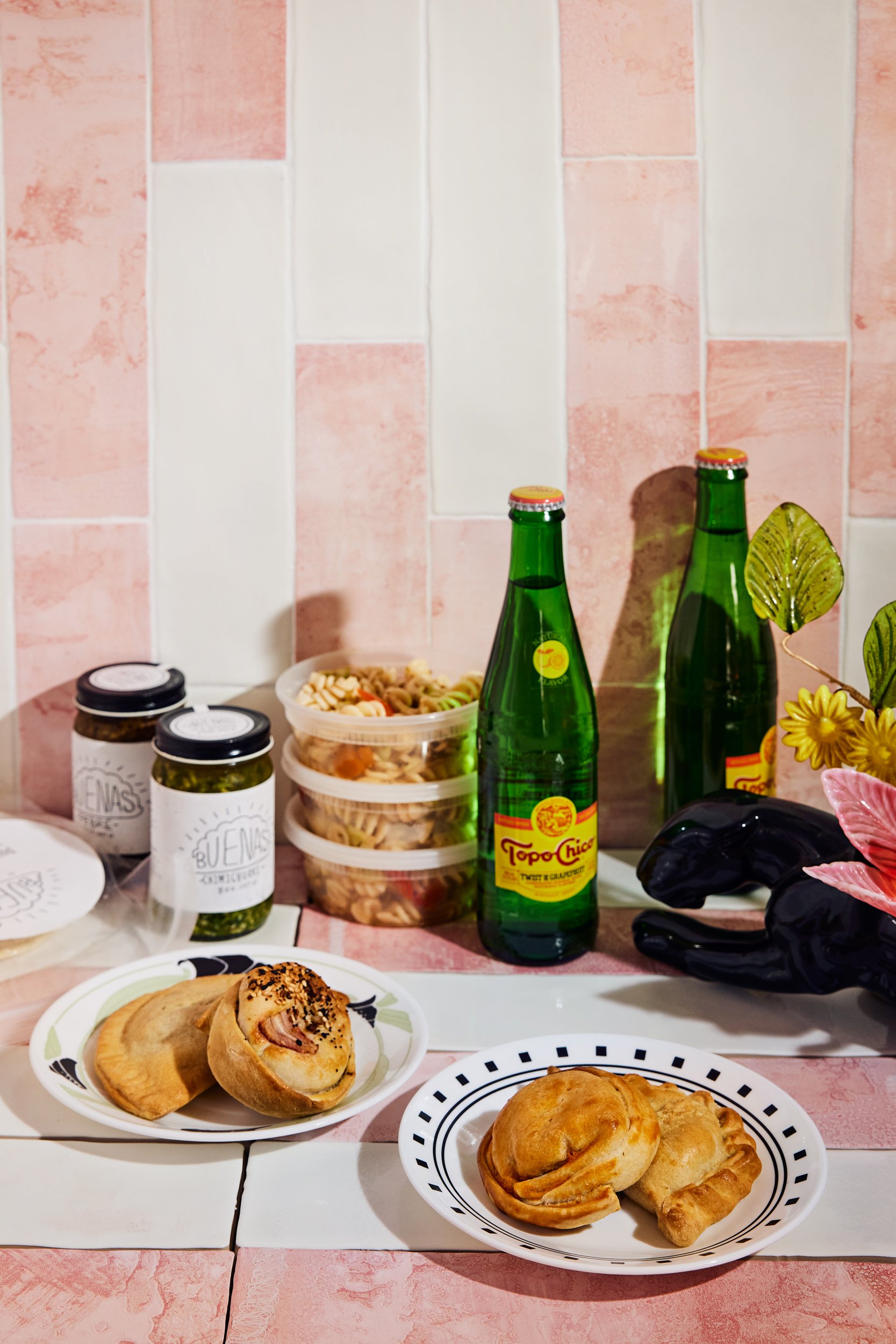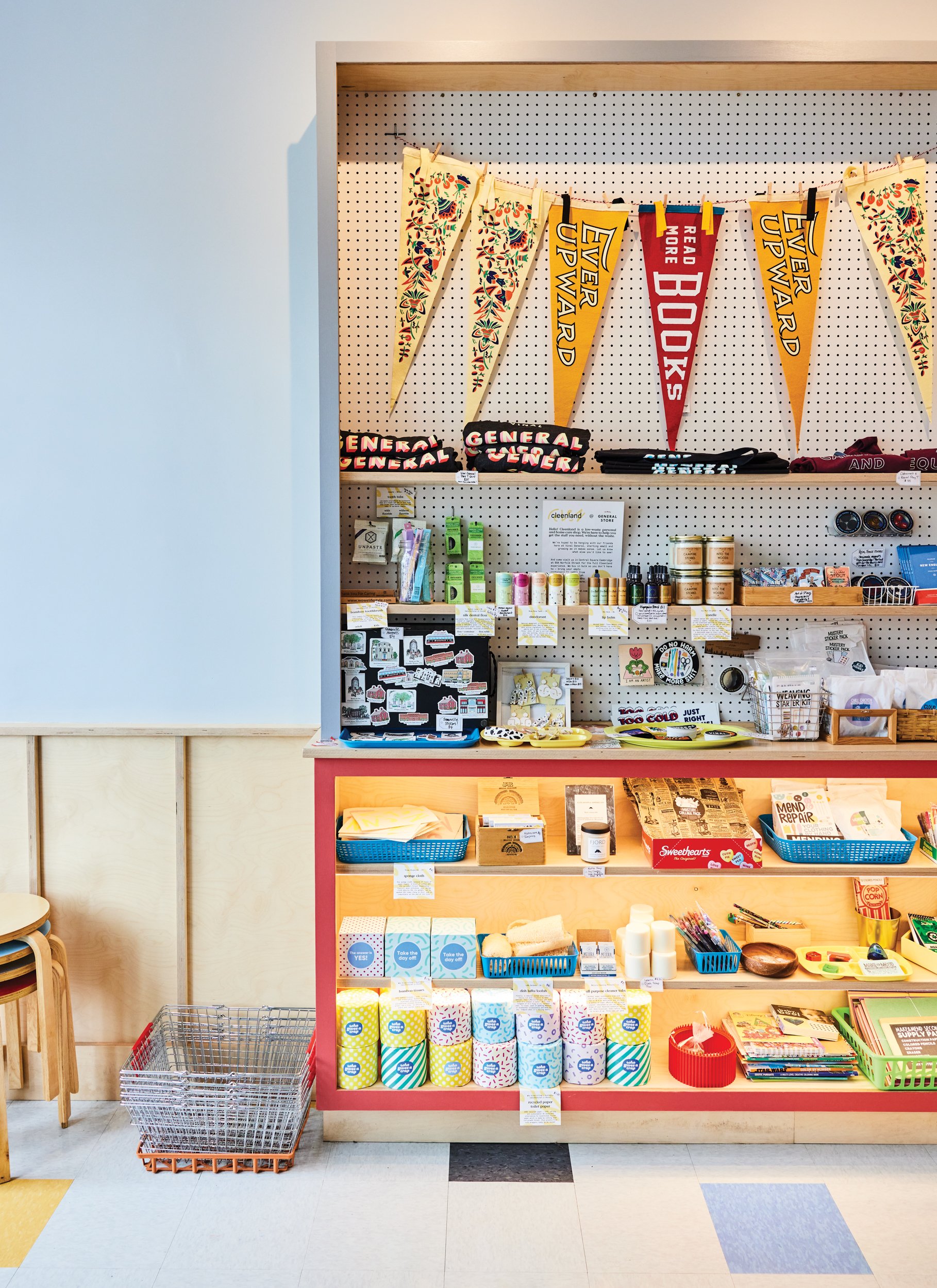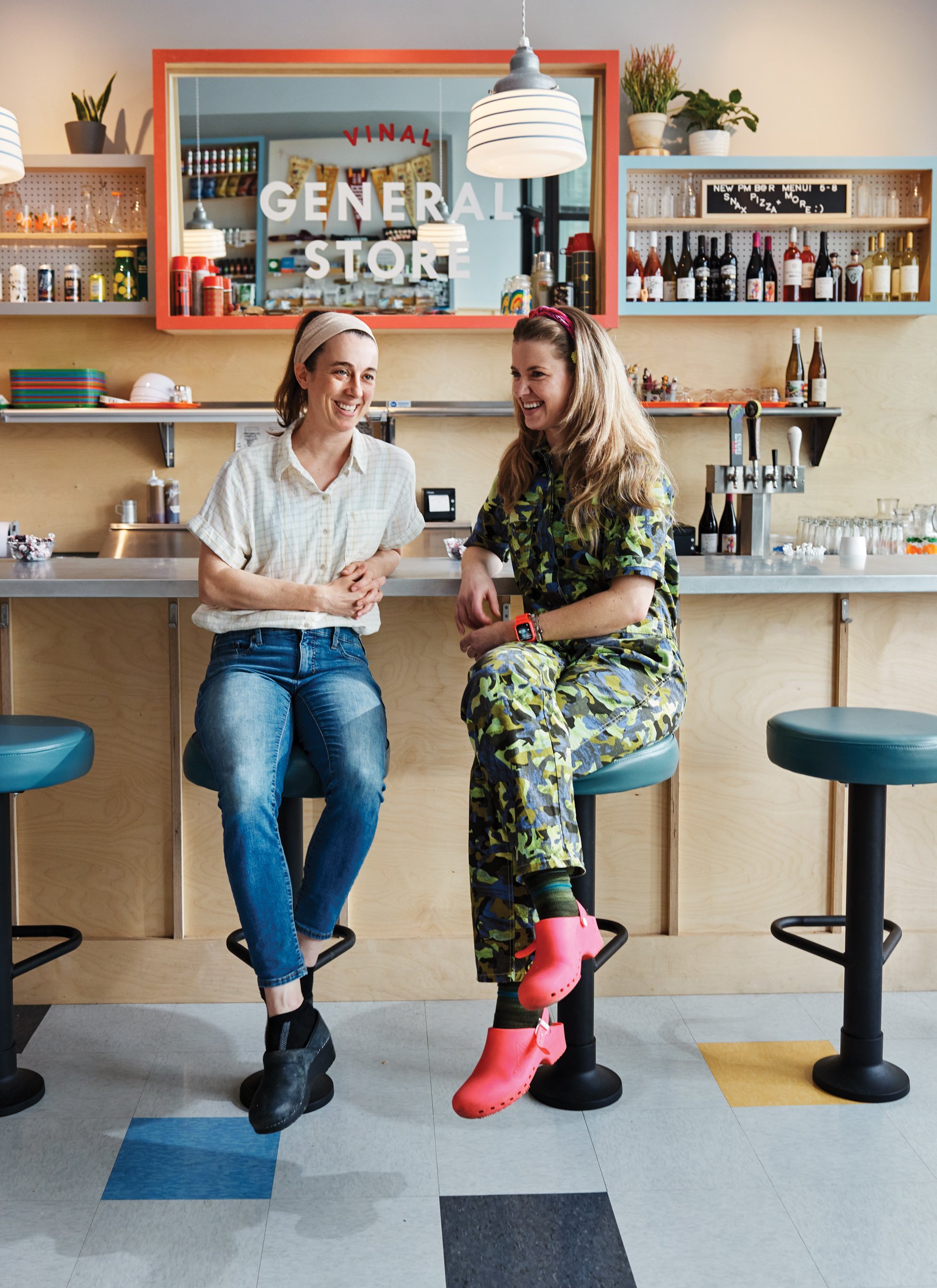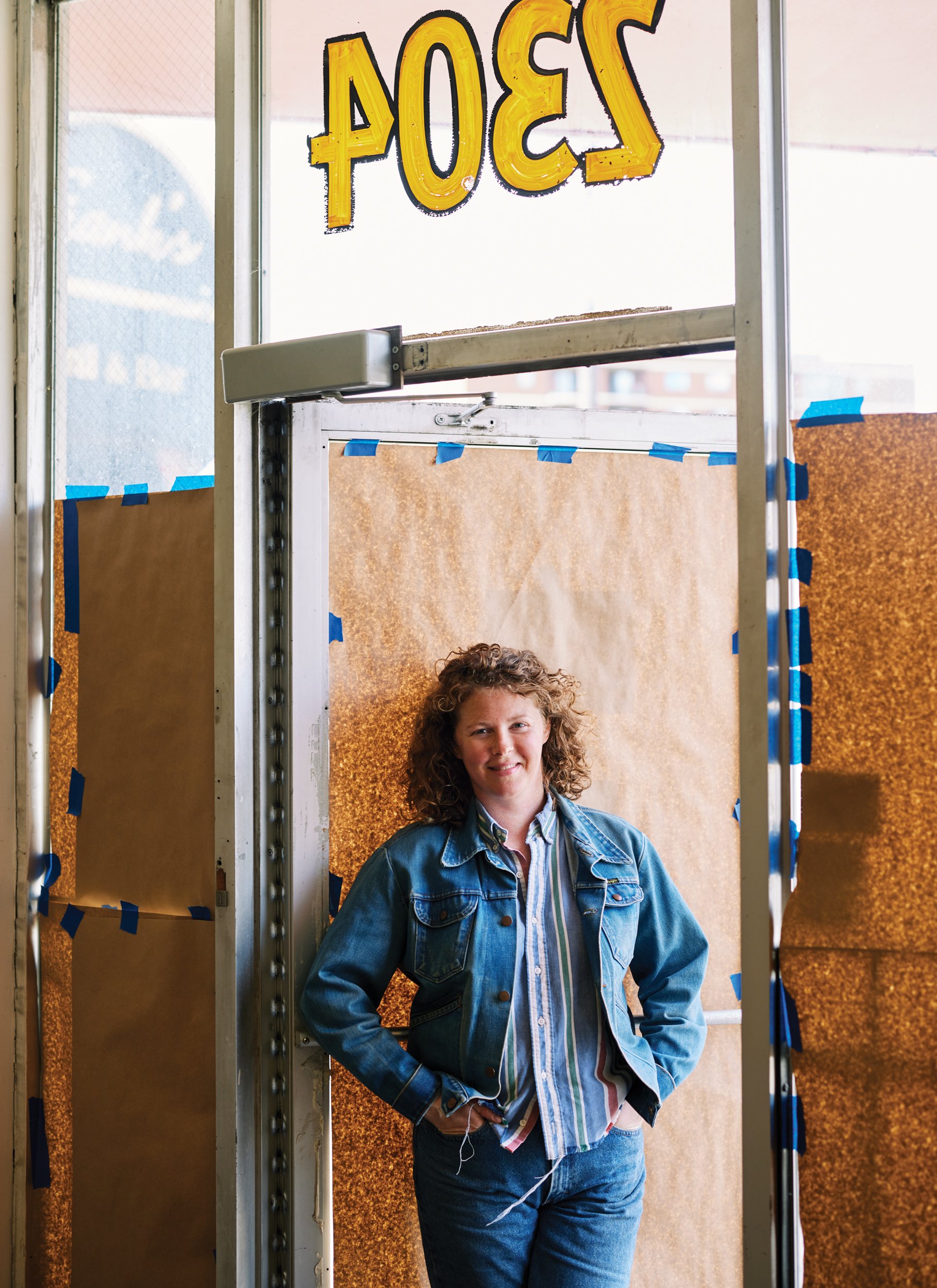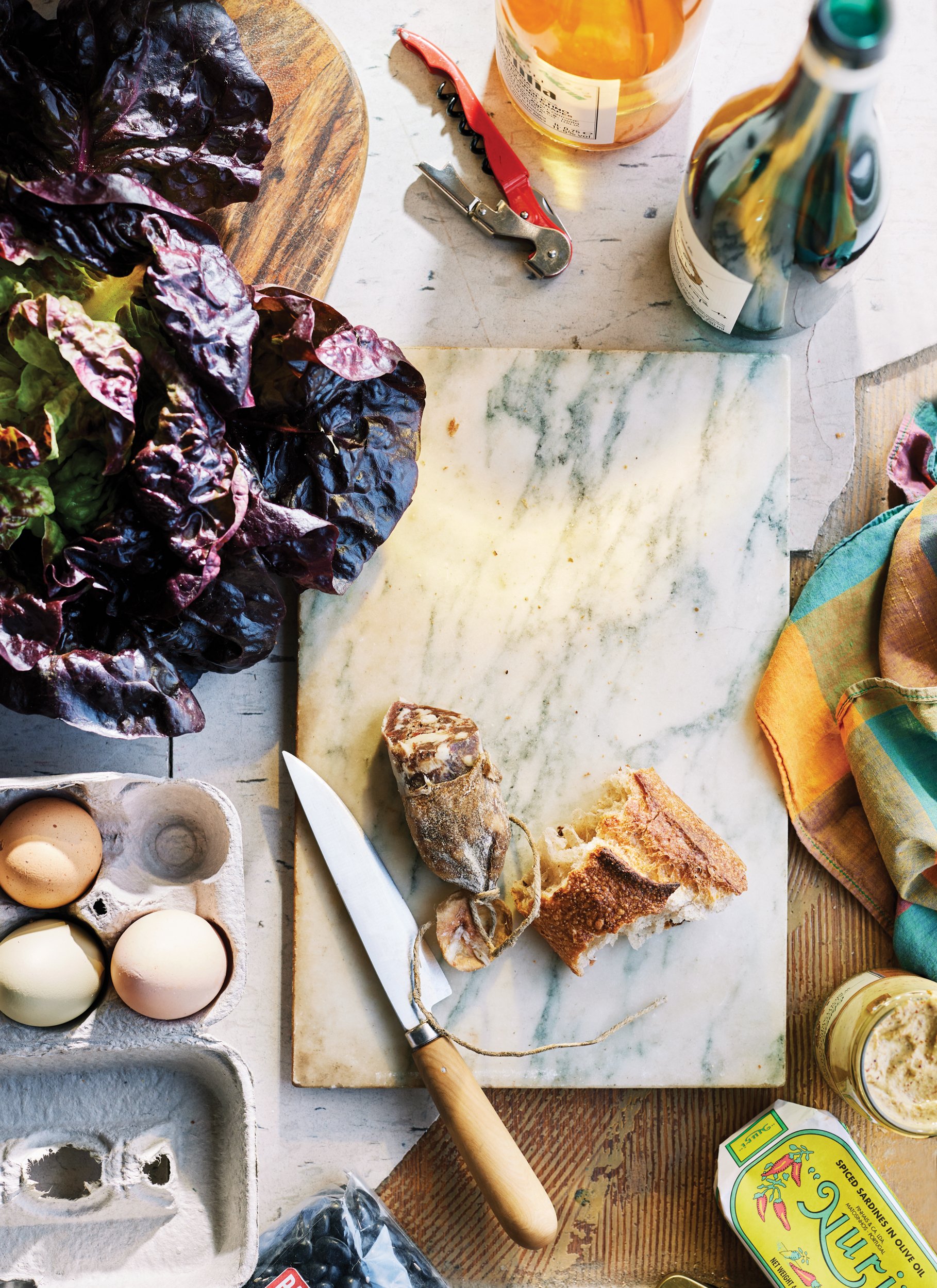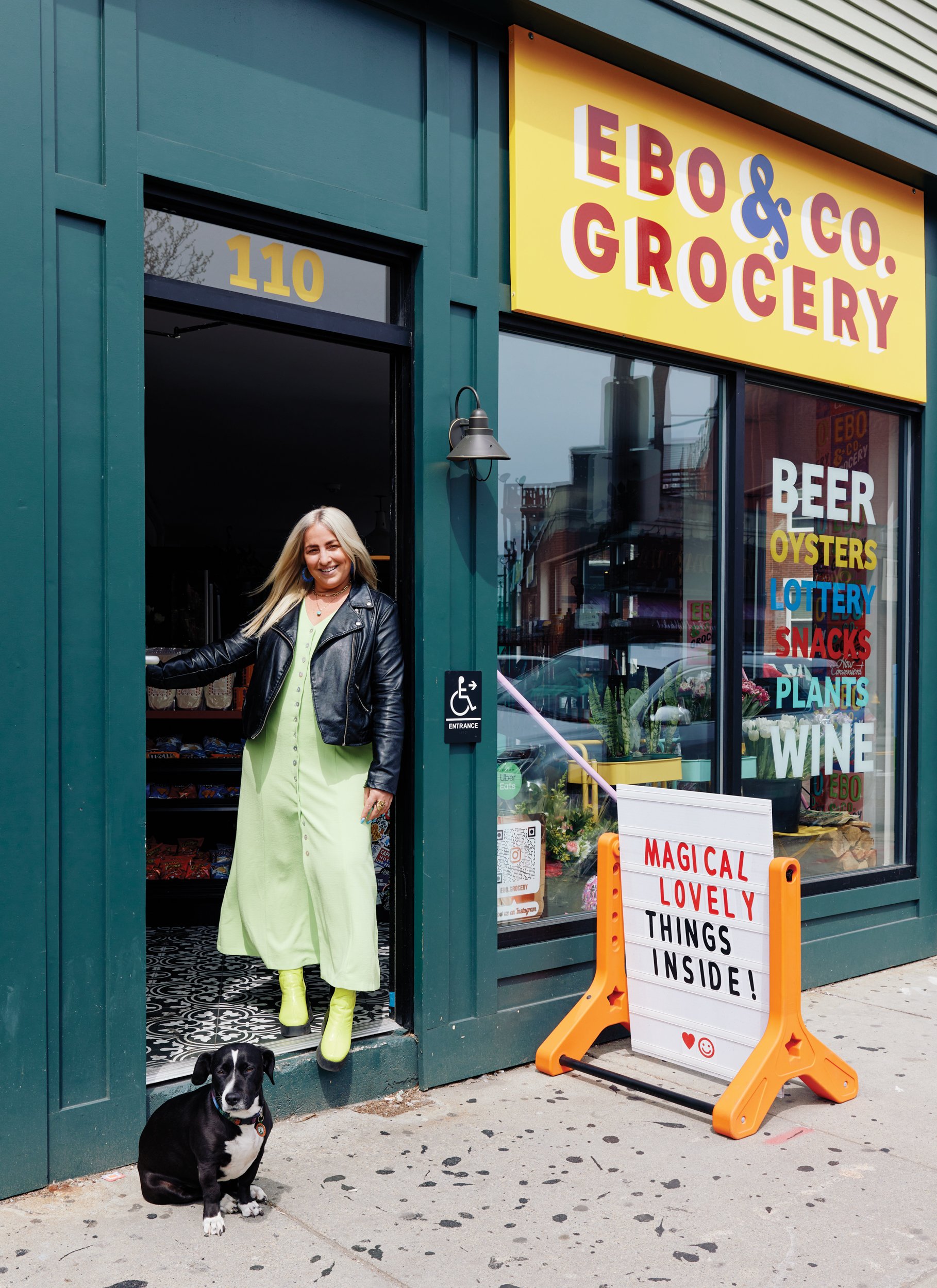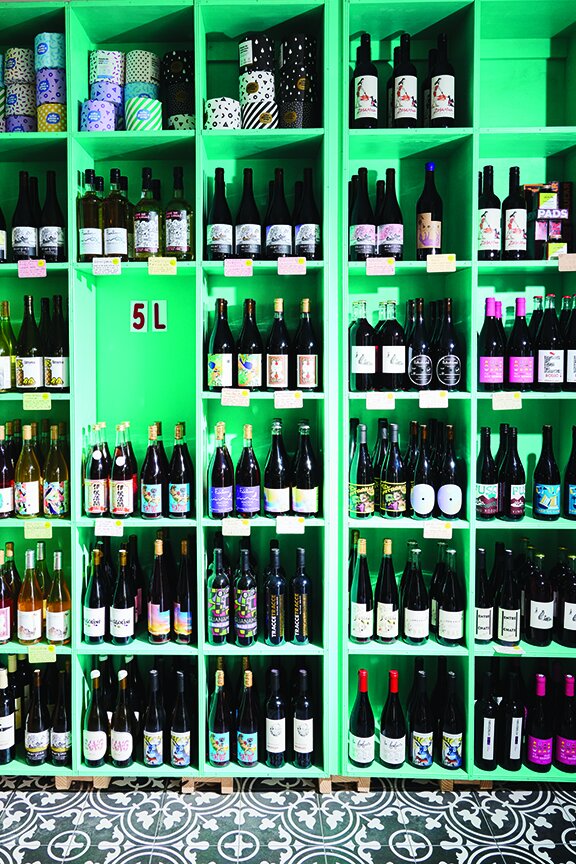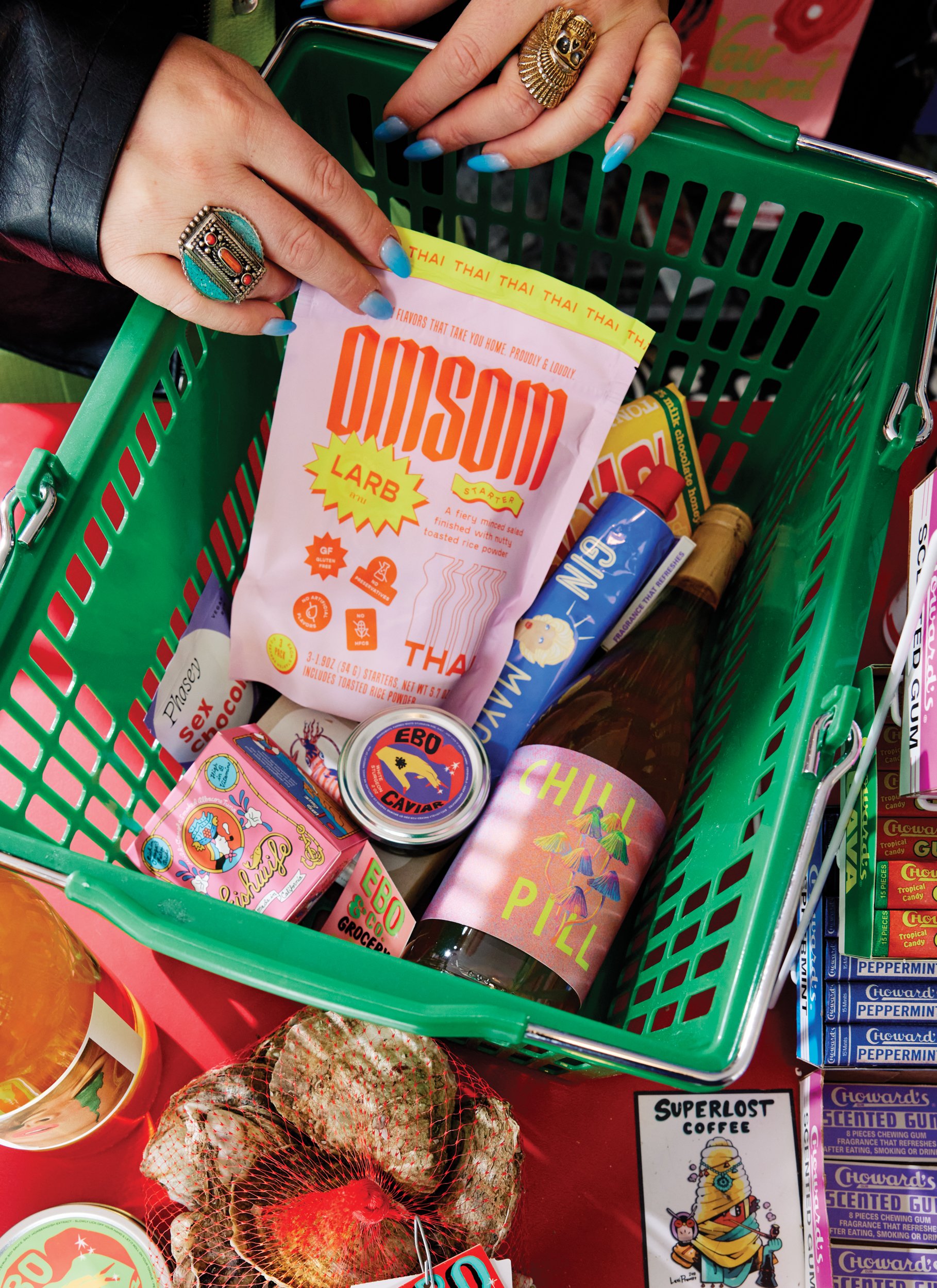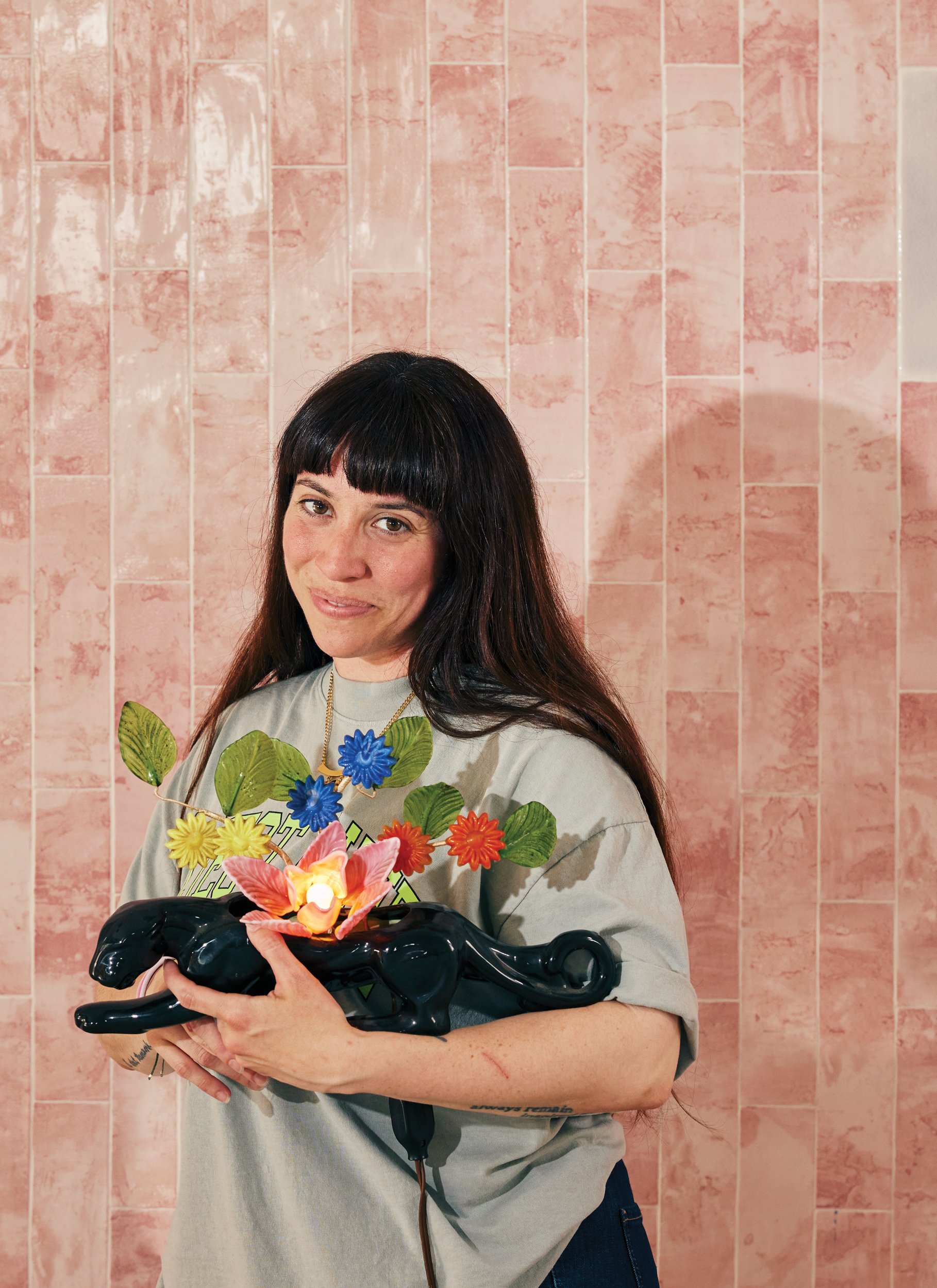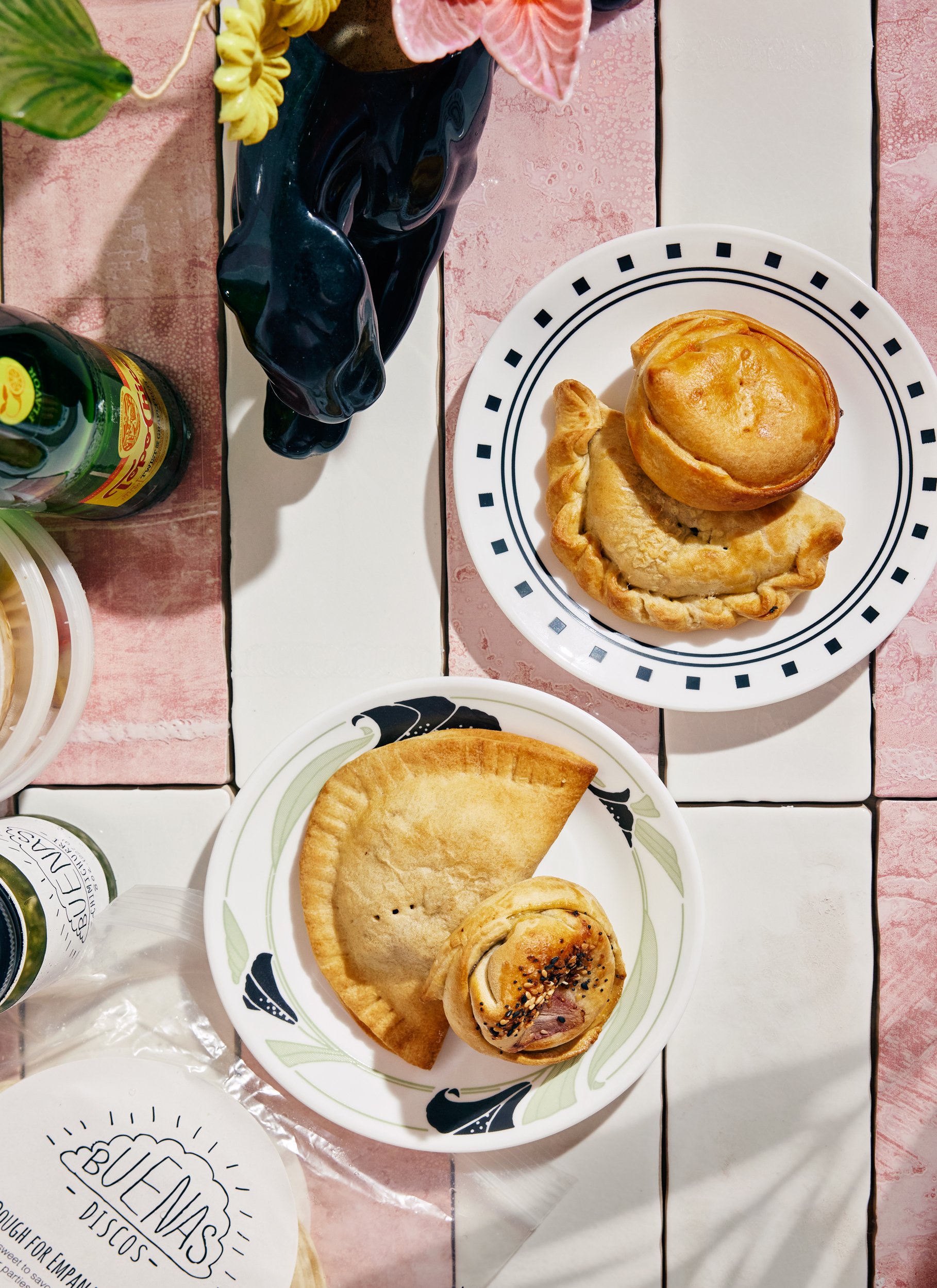The General Concept: New Old-Fashioned Neighborhood Shops
Photos by Kristin Teig
At the pandemic’s peak, making a convenient choice often felt like an ethical compromise. How to buy essential items without harming the essential workers who deliver them? How to support restaurants without letting a third-party app eat into the restaurant’s profit? For remote workers, the blurred boundary between home and work invited questions about the meaning and value of each. We hunkered in our neighborhoods. We missed friends, we missed small talk. The past looked pretty good, if we remembered it correctly through the fog.
As the pandemic wanes and we look towards a new normal, a national trend is flourishing in Greater Boston: Neighborhood markets—corner stores, bodegas, general stores— are popping up all over town. Each is driven by its owner's unique concept, providing space for real-world communities to grow and offering something good to eat.
VINAL GENERAL, SOMERVILLE
“People have been living a very static, monotonous and home-based life,” says Chloe Nolan, general manager of Somerville’s Vinal General. “I think there is a big moment for nostalgia happening right now. And that’s something that we’re trying to capture, like the old New England general store type of thing, where you can get a sandwich and your newspaper and a cup of coffee and some good chat.”
When a fire forced the laundromat next door to close permanently, Vinal Bakery’s landlord asked owner Sarah Murphy if she had any ideas for the space. As it happened, she’d been playing around with an idea for a retail concept. “She thought, ‘What’s a way to showcase New England–style stuff?’” says Nolan. The shop could serve as an evening complement to the bakery’s New England–focused anadama and English muffins. At first, the team considered a package store concept—a few sandwiches, locally sourced convenience store items, alcohol—but a beer and wine retail license was prohibitively expensive and hard to come by. Vinal General is “less of a general store, more of a motif—something that we’re playing with. We’ll have some retail, we’ll have to-go sandwiches available for online ordering. We’ll have some bar seats set up. We’ll just kind of see what people are looking for and move in that direction with the current.”
The store opened in January 2022. On some days there’s mostly online sandwich orders, on others people linger at the bar with chips and dip. “Let’s just be peak adaptability,” says Nolan. “Let’s just be peak adaptability,” says Nolan. The retail wall showcases local makers like Seven Hills Pasta and Brewers Crackers, with a Cleenland outpost for low-waste deodorant and dish soap, and art supplies from nearby Make & Mend in the unofficial kids’ corner. “We’re not competing with Target next door,” says Nolan. The shelves hang on an adjustable pegboard, easily changed to accommodate whatever comes next.
MOMMA’S, NORTH CAMBRIDGE
Danielle Pattavina, new owner of Momma’s, could see the future home of their new shop from their North Cambridge window. Momma’s would continue to serve the neighborhood as the old convenience store had, a place where neighbors could grab a stick of good butter, “candy and bouncy balls, all that stuff and natural wine,” says Pattavina. An architect from the neighborhood drew up plans for the new shop: a hand-tiled storefront, new windows, wood beams on the facade. For reasons beyond Pattavina’s control, the lease fell apart, but there was a silver lining: When they secured a retail space nearby, their concept shifted along with the change in location, “a great twist because now I can really focus on the grocery aspect a little bit more,” says Pattavina.
On Mass Ave, Pattavina’s new space will focus on produce, meat and dairy raised by New England friends and acquaintances, eventually incorporating food produced at the Vermont property they bought during the pandemic. “In August, we’ll have tomatoes and eggplant. In December, we’ll have potatoes and onions.” Wine will be in the back of the shop, with grocery items and kid-friendly stuff, like ice cream sandwiches and grab-and-go snacks, out front.
“I’m not sick of the restaurant industry. I don’t think I’ll ever be sick of it. I have definitely, you know, sold my Danskos a few times but I always go back.” After decades all over the industry, from scooping ice cream as a teen to high-volume bartending and restaurant ownership, Pattavina looks forward to serving a broader swath of neighbors at Momma’s. “I think that there’s a lot more access to food through a grocery shop than a restaurant. I had a restaurant on Martha’s Vineyard. I could not sell a glass of wine [that I felt good about selling] for less than $15, but I can sell kale grown by a farmer that I know in our region for $3 or $5.”
The retail shop offers a reprieve from the punishing physical work and high-stress environment of an industry that can’t function without exploiting labor; in the current system, Pattavina found it impossible to serve only locally grown food while paying workers and farmers fairly. “The system is dead, it’s broken. It’s not a sustainable system.” Until restaurants become sustainable, with the shop Pattavina can contribute to their community and forge a more sustainable path for themself. “I can have a better life, sit on a stool and check out a customer rather than, you know, further ruin my body.”
EBO & Co. GROCERY, EAST BOSTON
Alexis Cervasio developed East Boston Oysters—her buzzy secret supper club—eight years ago, as a way to continue working with chefs and farmers in the industry she loved without compromising her commitment to her young son. “That was hard to find. I had one or two days free because my son was with his father, and I said, ‘What can I do with oysters?’ Because I just love them. ‘And what can I do in my neighborhood of East Boston?’ Because I was finding so much value here, just walking the streets and making all these new discoveries.” The idea was a hit, the club garnered great press and sustained Cervasio for years.
But then, “it started to bother me more and more every year… I would travel to Brooklyn and find the cutest little [corner] stores. And I thought, ‘Why can’t we have this in Eastie?’ Then I realized, we can! It was just up to me to open it. So I did.”
At her new EBO & Co. Grocery, Cervasio brings the same joyful irreverence and camera-ready aesthetic to a corner store that had earned her supper club parties such success, selling skin-fermented Chenin and her own branded caviar alongside Takis, Miller High Life and lottery tickets.
When the pandemic shut down her parties, Cervasio knew the time was right for a shop. “Realizing what was essential and not essential during the pandemic, I wanted to be essential.” A convenience store felt like a logical step in a career formed around her son’s needs. Now that he’s older, he drops by with his friends on the walk home from school—and EBO & Co. sponsors his Little League team, providing concessions, with caviar-topped hot dogs for those in the know.
SUPER BIEN, BRIGHTON
“I think that for a lot of the actual grocery stores and bodegas that are opening now, I think the ‘why’ is because of what we just went through with the pandemic,” says Melissa Stefanini, founder of Buenas Empanadas. But her vision for Super Bien was always clear. When it opens, her “grocerybar” at the Charles River Speedway will allow her to expand her offerings beyond the empanadas and sauces she’s known for at Bow Market. Unlike the general and corner stores, the Super Bien concept will spotlight her own brand and give her production facility a reason to exist. “98% of it is dedicated to the Buenas stuff and things that I want to package that I haven’t been able to. I think that that makes it different. I definitely want to feature other people, but I don’t want to water down the thing that makes us different. Because then it is a bodega, and that’s not what this is.”
Like the others, the concept is explicitly casual: “Very picnic-y, a lot of grab-and-go stuff from the fridges, and then we’ll have empanadas. I don’t think I could not.” With Super Bien, Stefanini is creating a new concept to fit her needs and bring people together: “The space is somehow going to fit a bar in a grocery store. The bar and grocery are intertwined. I want it to feel like you’re coming to my house or a cool friend’s house, and for some reason you’re sitting at the kitchen island or the bar and you could buy that jar of sauce next to you.”
We’re working on the new normal, choosing what to keep from the before times and what to discard. At these new neighborhood shops, proprietors are modeling a way to shape work around life, rather than the other way around, in a way that restaurants can’t. The shops serve neighborhood people, face to face, in real life, every day—leaving behind the eighty-hour weeks, keeping the fancy sandwiches. And all the good chat. Just the essentials.
vinalgeneralstore.com
@mommascambridge
ebogrocery.com
@super.bien_
This story appeared in the Summer 2022 issue.

